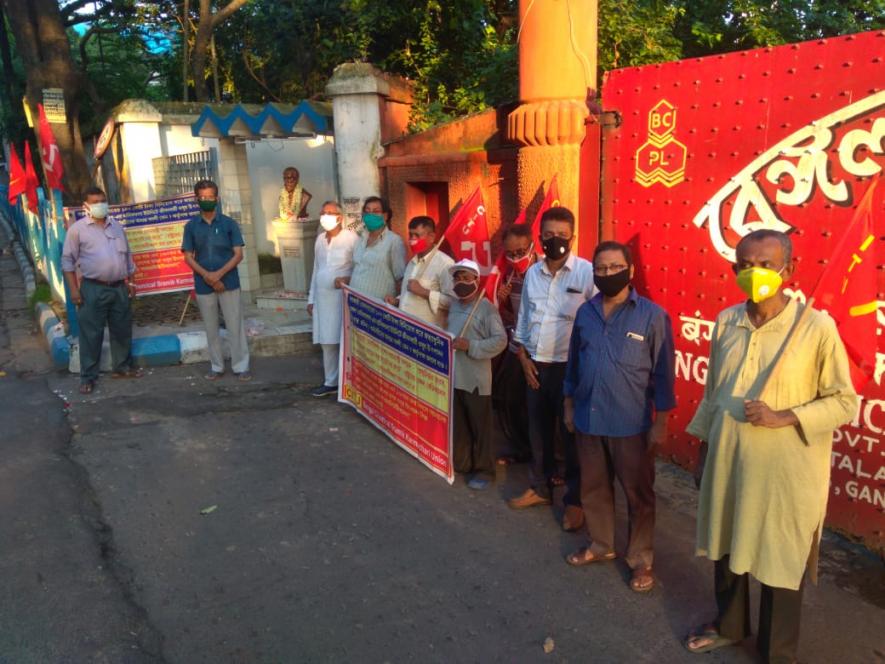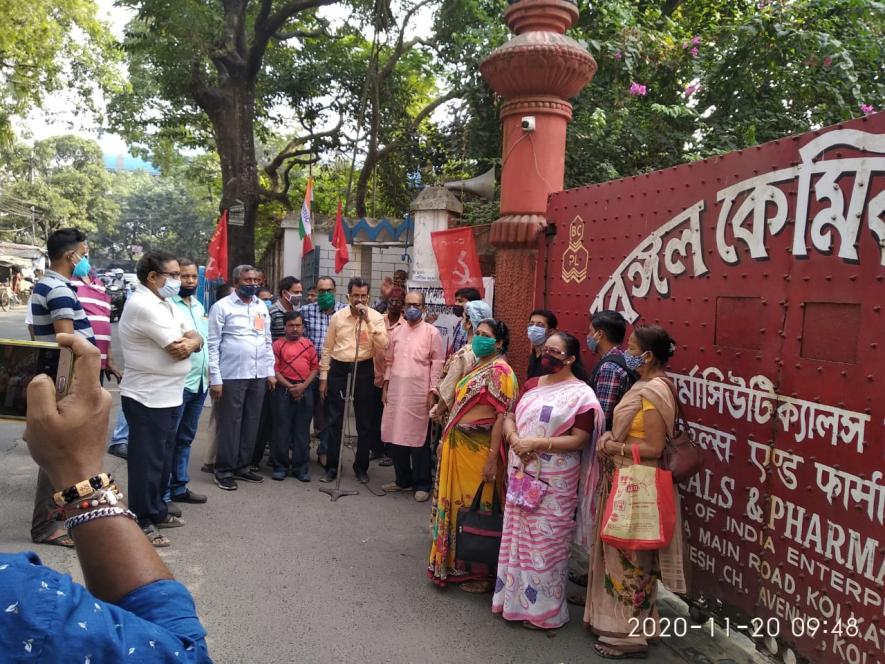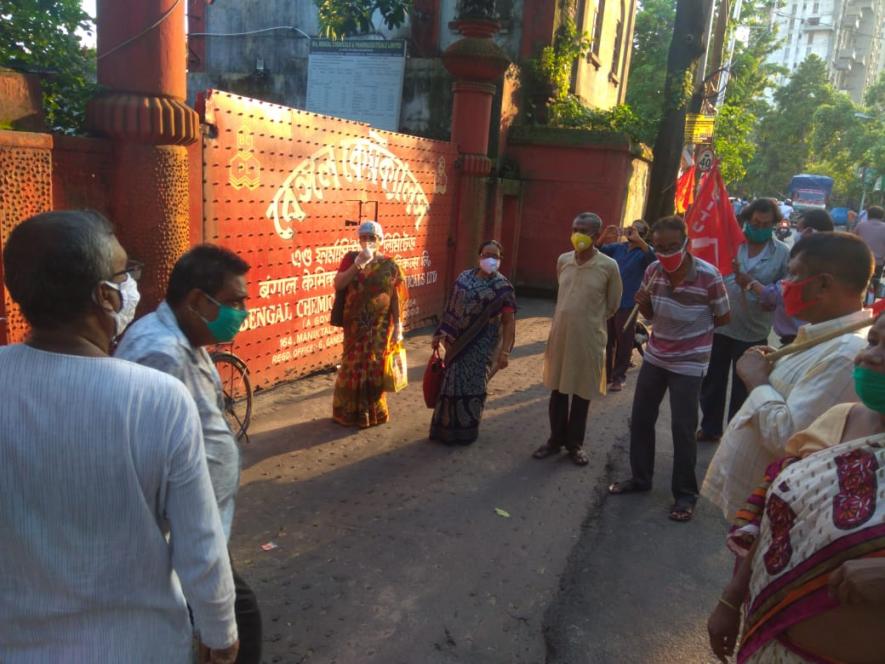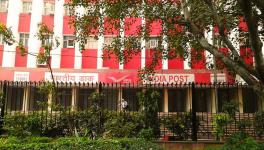Workers Against Privatisation of Bengal Chemicals, India's First Pharma Concern

Kolkata, August 23: Workers and employees of the PSU Bengal Chemicals and Pharmaceuticals Ltd (BCPL) – India's first pharmaceutical company – have been calling out the Centre to prevent its strategic sale. The company was established by scientist Acharya P.C. Ray and industrialist Manab Mitra in the year 1901 .
Aiming to make India self-reliant ('Atmanirbhar') when it came to chemicals and pharmaceutical products, the company has seen many ups and downs since coming about. A recent Rs 400 crore revival package led to the company being profitable in the past couple of years, with the number hitting Rs 130.7 crores in FY 2020. Since 2016 the company has been making regular profits, now said Mrinal Roy Choudhury, general secretary of the CITU-affilated Bengal Chemicals Workers' & Employees Union.

BCPL’s products — Bengal Chemical Pheneol, naphthalene balls, Cantharidine hair oil, Kalmegh and Aqua Ptychotis —still command a market share through the company’s own retail outlets opened recently, modern trade and on e-commerce sites. It was also among the first Indian manufacturers of anti-snake venom.
'Atmanirbhar Bharat' -- A 'Frivolous' Campaign
The company, which began its journey on April 12, 1901 from Maniktala in Kolkata, now has factories and sales units in Kanpur, Mumbai and most of the bigger cities. Various life saving drugs and Sulfuric acid, an important chemical for the industry, are important products made by Bengal Chemicals. Choudhury said that the "self-reliance" that the PM speaks about is not in action as the Centre was "trying to hive off the prestigious industry" despite it being a profit-making concern with heritage value. "The attempt to sell the concern shows the hollowness of the PM's 'Atmanirbhar Bharat' campaign," Choudhury told Newsclick.
Present Position
Post-2016 the Central Government had embarked on the goal of a strategic sale of the concern. With this aim it tried to hive off 25 acres of land that belonged to the factory at Panihati, which is expected to fetch over Rs 1,000 crore. Till 2011 the Left Front Government ensured that BCPL was not harmed. However, since 2011, the TMC run state government has shown little interest in putting pressure on the Centre. However, the unions wrote to the PM on multiple occasions to not hive off BCPL. A protest note was also sent to the PMO on behalf of the workers and employees of the concern .
Litigation Won
At the same time a case was filed in the Calutta High Court, seeking its intervention in the matter. In February 2018, a verdict was delivered by a single-judge bench of Calcutta High Court, striking down the strategic sale of BCPL. High court judge Debangsu Basak had ruled that Bengal Chemicals should not have been classified as a low priority public enterprise. The Centre in April 2018 had moved the division bench, challenging the verdict. The proceedings are still being continued in Calcutta HC.
West Bengal Governments Role
The present government in Bengal does not seem too keen on BCPL with urban local bodies and corporations not buying its products. The company and the union had approached the state Government in this regard with its product quality said to be superior in comparison to what competitors produce.

The Standing Committee on Chemicals & Fertilizers in its latest report has strongly advocated that BCPL continues making its products since they were profitable concerns even during COVID-19 times. It has urged the Centre to rethink its moves but insiders say that the Niti Aayog is opposed to it.
Government Strategy Now
Though at the moment, the Government has been unable to sell the concern due to it being mired in litigation. However, with no Managing Director in place and due to "half-hearted" management, the concern may die a natutral death. Currently the Managing Director of HAL has been given additional charge as MD of the concern and he is said to have visited the factories once over two years with union leaders still unable to meet him.
BCPL employees who retired between 2007 and 2016 have not got retirement benefits, said Choudhary. When it was nationalised there were 2,500 permanent employees in the concern. Many retirements later, it now has 125 permenent and about 125 contractual employees.
Get the latest reports & analysis with people's perspective on Protests, movements & deep analytical videos, discussions of the current affairs in your Telegram app. Subscribe to NewsClick's Telegram channel & get Real-Time updates on stories, as they get published on our website.
























